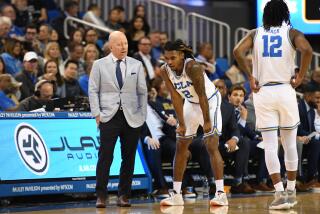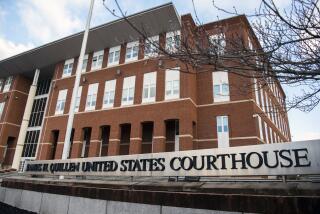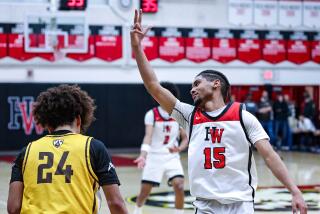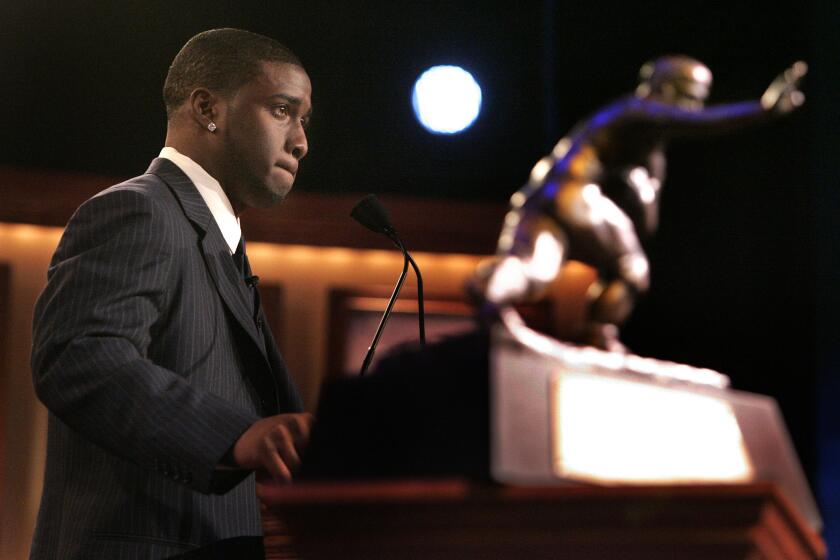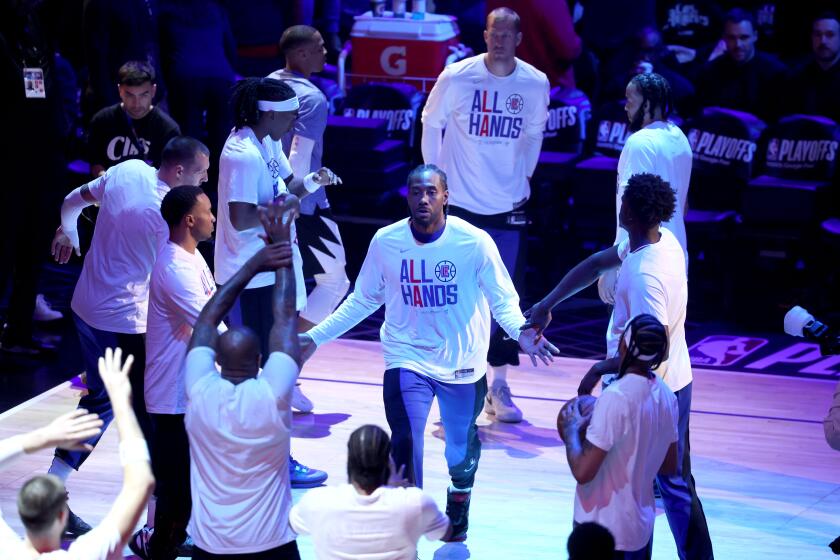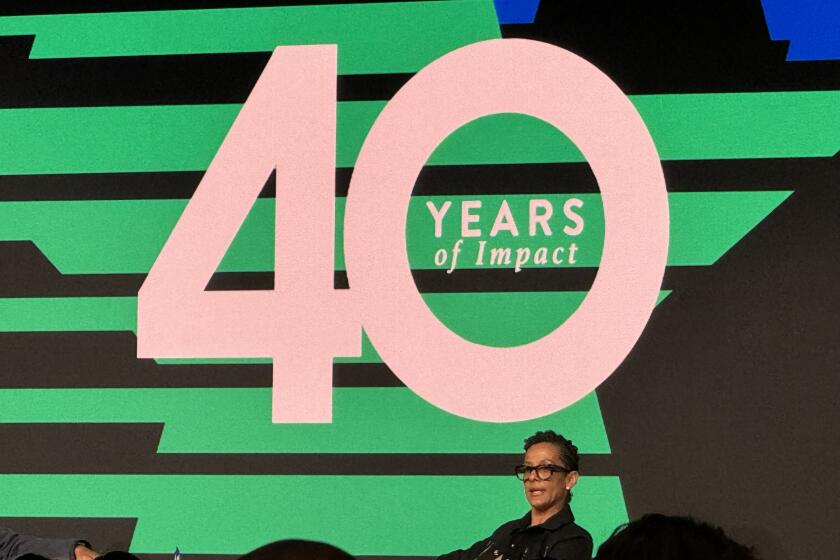Shabazz Muhammad’s dad spoke of receiving loan, court documents say
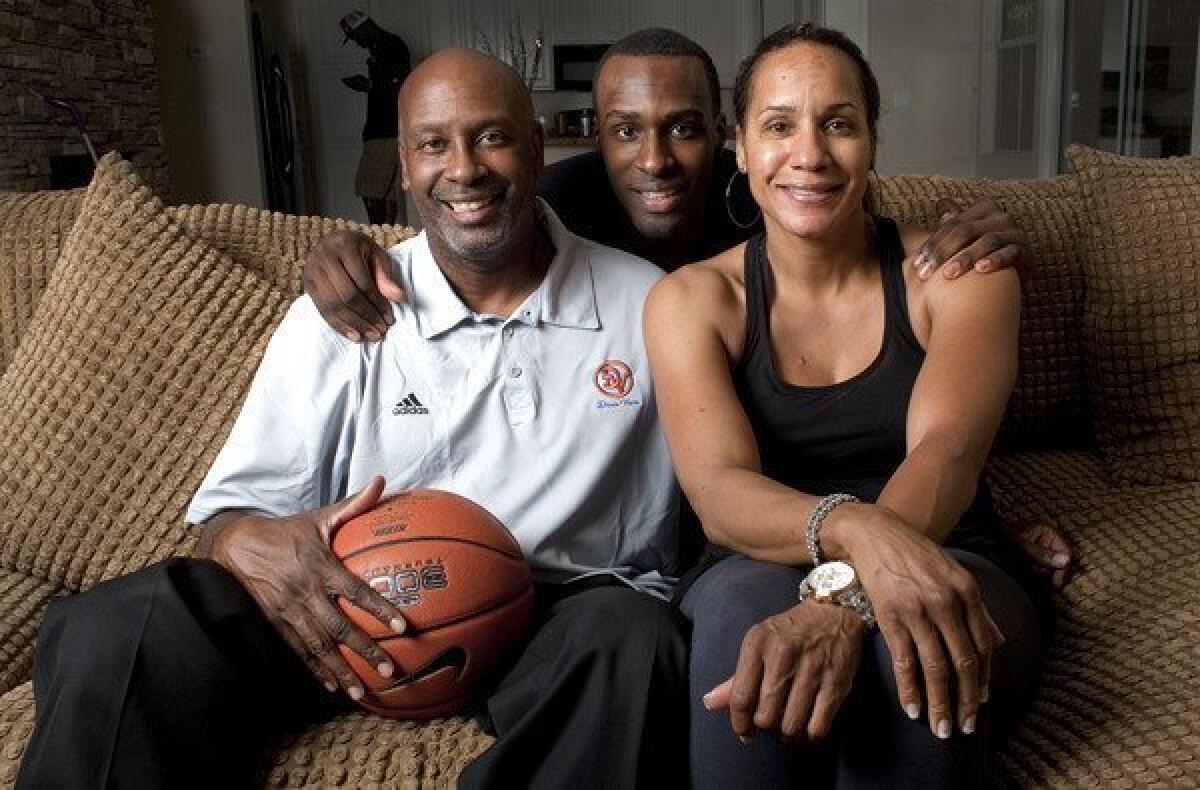
As Shabazz Muhammad’s father is sentenced Thursday in U.S. District Court in Las Vegas for conspiracy to commit fraud, UCLA faces its most significant men’s basketball game since 2008. Muhammad is in the NBA now, but the off-court problems he brought to UCLA last season continue to dog the school.
According to a sentencing brief filed last week, Ron Holmes told the FBI he received a loan based on his son’s future professional basketball earnings. Estimated at $350,000 in another court document, the loan was Holmes’ principal source of income at the time and came from an unnamed “marketing company.” Holmes also expected to receive $200,000 to $300,000 a year from the deal once Muhammad was in the NBA.
The arrangement, however, may run afoul of NCAA rules.
“It would be a violation … if that loan would not generally be available to the institution’s students and their family or friends,” said Michael Buckner, an attorney with the Buckner Law Firm who has been involved in numerous NCAA enforcement cases.
The NCAA’s 432-page rule book doesn’t permit loans based on athletic skill or a future as a professional athlete. The rules also don’t allow athletes or their families to accept benefits from agents that aren’t also available to the general student body. An agreement with an agent before an athlete’s eligibility is exhausted is a violation too. In 2012, the NCAA expanded the definition of an agent to include financial advisors and marketing representatives.
Messages to the NCAA, the Pac-12 Conference and Muhammad’s agent, Bill Duffy, weren’t returned Wednesday.
Where the latest twist in Muhammad’s tumultuous association with UCLA will lead isn’t clear.
“You’d suspect a more vigorous attitude toward looking at cases where the parents have actually profited off of the student,” said John Infante, former compliance director at Colorado State and Loyola Marymount.
The biggest mitigating factor, Infante said, is whether Muhammad knew about the loan.
“The odds of him cooperating with the NCAA are probably pretty slim to get to the bottom of this,” Infante said.
In a court hearing last May, a then-attorney for Holmes claimed the loan was against the future earnings of his daughter, professional tennis player Asia Muhammad. Judge George Foley Jr. dismissed that argument. Earlier that day, Holmes had admitted the loan’s connection to his son’s career in an interview with pretrial services. The attorney quickly backed off.
“I just wanted to clear up that I think the issue was that (Holmes) was stating that his son would be potentially paying off the loan,” defense attorney Michael Miceli said, according to the transcript, “(but it) was, however, not put in his name.”
UCLA athletic department officials said Wednesday that the school became aware of the loan when the NCAA investigated Muhammad in 2012 and believed the loan used Asia Muhammad’s future earnings as collateral. Last fall, the school alerted the NCAA and Pac-12 when it learned of the loan’s connection to Muhammad’s professional prospects. Nothing has happened since, the officials said.
The court document filed last week noted that Holmes said he also received a portion of his daughter’s earnings.
In December, Holmes pleaded guilty to conspiracy to commit fraud after being accused of using straw buyers and false information for home purchases. He has to pay $1.7 million in restitution. Though the defense seeks a sentence of 366 days in prison plus community service, prosecutors want 37 months. Holmes has been under house arrest in Las Vegas since late May. Holmes was also convicted of mortgage fraud in 2000 in Los Angeles County and served six months of house arrest.
Trouble followed Muhammad to UCLA. He missed the school’s first three games in the 2012-13 season after the NCAA ruled him ineligible for receiving expenses from a family friend to pay for two unofficial recruiting visits to other schools. And last March, documents confirmed Muhammad was a year older than listed. Still, Muhammad was named to the All-Pac-12 first team as he averaged 17.9 points a game and displayed the ability that made him one of the country’s sought-after high school recruits. UCLA, though, lost its NCAA tournament opener in 2013 and subsequently fired its coach, Ben Howland.
The NBA transition hasn’t gone smoothly. Muhammad, who signed a two-year contract with Minnesota for $3.86 million, was dismissed from the league’s rookie program in August for bringing a woman to his room. This season he’s averaged 3.1 points in limited playing time over 31 games for the Timberwolves.
In a 11/2-page letter to the judge filed last week, Muhammad sought leniency for his father.
“My dad is an integral part in my life and I need him very much in it,” Muhammad wrote. “I know for a fact my dad is most happy about me becoming a professional basketball player because of the opportunity to help myself and others.”
The loan wasn’t mentioned.
Times staff writer Chris Foster contributed to this story.
More to Read
Get our high school sports newsletter
Prep Rally is devoted to the SoCal high school sports experience, bringing you scores, stories and a behind-the-scenes look at what makes prep sports so popular.
You may occasionally receive promotional content from the Los Angeles Times.
